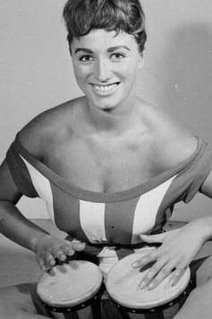Bucking the Trends
It never fails. Once a Harry Potter-like phenomenon hits, dozens of YA books about wizards and magic follow. Some are successful, while others fall into literary oblivion. A huge chick lit book is made into a major motion picture with Hollywood's hottest stars slated to star in it? Expect chick lit to fill the bookshelves in the next year. This is what happens when trends hit the publishing industry. A lot of new writers will get excited and want to jump on the latest bandwagon, prompting scores of them to blindly send out queries and/or manuscripts, explaining why their book is better than the current bestseller.
This is not always the best approach and here's why:
1. Publishing is a slow business: By the time a writer gets a final draft of a manuscript finished, it could be at least six months to a year after the hot new trend debuts. (If it only takes one month to churn out a "polished" manuscript, there's small chance it's really polished.) Once you start on the querying road, it could be another six months to a year before you get a "yes" from an agent or publisher and then another year or two until the book is actually published. Guess what? The trend is probably dead by then.
2. The trend is not really your style: Say the trend is romance with a quirky heroine; she swears like a sailor and chain smokes, but is really kind to puppies and elderly ladies. If this is right up your alley, it'll show with each enthusiastic word you put on paper. If you're more the crime scene analyst type who's trying to catch the latest serial killer and you force yourself to write about the quirky heroine, chances are she won't ring true and you'll hate every word you have to write about her.
3. Many agents aren't interested in the latest trends: While some agents leap onto the latest bandwagon, some are more concerned with writing that will last the test of time, writing that will become the next generation's classics. The last thing they want to see is the next Narnia chronicle; they want a hero who readers remember long after they close the book.
Instead of spending the next year or two of your life hoping to publish a book whose premise will be outdated and tired by the time readers get their hands on it, spend it crafting a book whose characters you love, whose story is true and whose trend is timelessness.
This is not always the best approach and here's why:
1. Publishing is a slow business: By the time a writer gets a final draft of a manuscript finished, it could be at least six months to a year after the hot new trend debuts. (If it only takes one month to churn out a "polished" manuscript, there's small chance it's really polished.) Once you start on the querying road, it could be another six months to a year before you get a "yes" from an agent or publisher and then another year or two until the book is actually published. Guess what? The trend is probably dead by then.
2. The trend is not really your style: Say the trend is romance with a quirky heroine; she swears like a sailor and chain smokes, but is really kind to puppies and elderly ladies. If this is right up your alley, it'll show with each enthusiastic word you put on paper. If you're more the crime scene analyst type who's trying to catch the latest serial killer and you force yourself to write about the quirky heroine, chances are she won't ring true and you'll hate every word you have to write about her.
3. Many agents aren't interested in the latest trends: While some agents leap onto the latest bandwagon, some are more concerned with writing that will last the test of time, writing that will become the next generation's classics. The last thing they want to see is the next Narnia chronicle; they want a hero who readers remember long after they close the book.
Instead of spending the next year or two of your life hoping to publish a book whose premise will be outdated and tired by the time readers get their hands on it, spend it crafting a book whose characters you love, whose story is true and whose trend is timelessness.
Labels: Being a Writer, books, craft of writing, Creativity, Del Sandeen, fiction, Tips, writing, writing craft, writing voice












